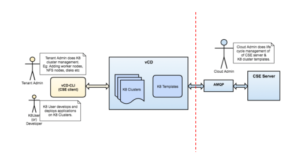
March 23, 2023 – The House Energy and Commerce Committee will host a mark-up meeting on Thursday to consider pieces of legislation that will “keep America at the forefront of next-generation communications technology,” according to a press release.
The Secure Space Act and the Satellite and Telecommunications Streamlining Act introduced by Chairman Frank Pallone, Jr., D-N.J., and Ranking Member Cathy McMorris Rodgers, R-Wash. in December last year will be among those going through the line-by-line process on Thursday.
The Secure Space Act prohibits the Federal Communications Commission from issuing satellite licenses or other related authorizations to untrusted actors, based on the framework adopted in the Secure and Trusted Communications Networks Act.

The Satellite and Telecommunications Streamlining Act clarifies FCC authority with the goal of promoting responsible use of space, incentivizing investment and innovation, and advancing U.S. leadership.
“America is leading the way in next-generation satellite technologies, which are contributing to a revolution in the communications marketplace,” the representatives said in a statement. “To make sure the U.S. – not China – continues to lead this global industry, we must streamline our regulatory processes to unleash innovation while also ensuring our laws fully protect the American public.”
Bills to ensure cybersecurity reserves in government introduced
Two bills introduced Tuesday by Sens. Jacky Rosen, D-Nev., and Marsha Blackburn, R-Tenn., would establish pilot programs that would hire civilian cybersecurity personnel in reserve to “ensure the U.S. government has the talent needed to defeat, deter, or respond to malicious cyber activity, especially at times of greatest need.”
The bills, some versions of which were previously introduced but did not pass, would establish the Civilian Cybersecurity Reserve pilot programs within the Department of Defense and the Department of Homeland Security.

“Cybersecurity threats targeting the United States continue to grow in scale and scope, demonstrating the urgent need for robust civilian cyber reserves capable of addressing these threats and protecting our nation,” Rosen said in a press release on Tuesday. “Our bipartisan legislation will help ensure the U.S. government can leverage existing cybersecurity talent from the private sector to help our nation deter and swiftly respond to cyberattacks.”
The bills comes at a time when federal agencies are “experiencing a growing shortage of cybersecurity talent,” the release said.
“As the cyber domain continues to expand in size and complexity, so should our cyber workforce,” Blackburn said. “By creating a reserve corps similar to our National Guard or Army Reserve, we can ensure the U.S. has qualified, capable, and service-oriented American talent that is necessary to address cyber vulnerabilities and keep our nation secure.”
Gigabit Center to provide free internet to students in Crown Heights, NY
The Brooklyn Gigabit Center, which will provide free internet resources for students, opened in Crown Heights, New York on Wednesday.
The center will provide free high-speed Wi-Fi, technology, education and school supplies to Crown Height, New York, an area where 36 percent of households lack broadband, according to the press release.
The center opened with a press conference hosted by the administration of Mayor Eric Adams, LinkNYC, the New York City Office of Technology and Innovation, digital infrastructure company ZenFi Networks, and tech education non-profit Digital Girl, according to a ZenFi Networks press release.
ZenFi Networks has previously opened centers in the Bronx, Manhattan, and Queens to help the local communities to learn and adopt to modern technologies.



